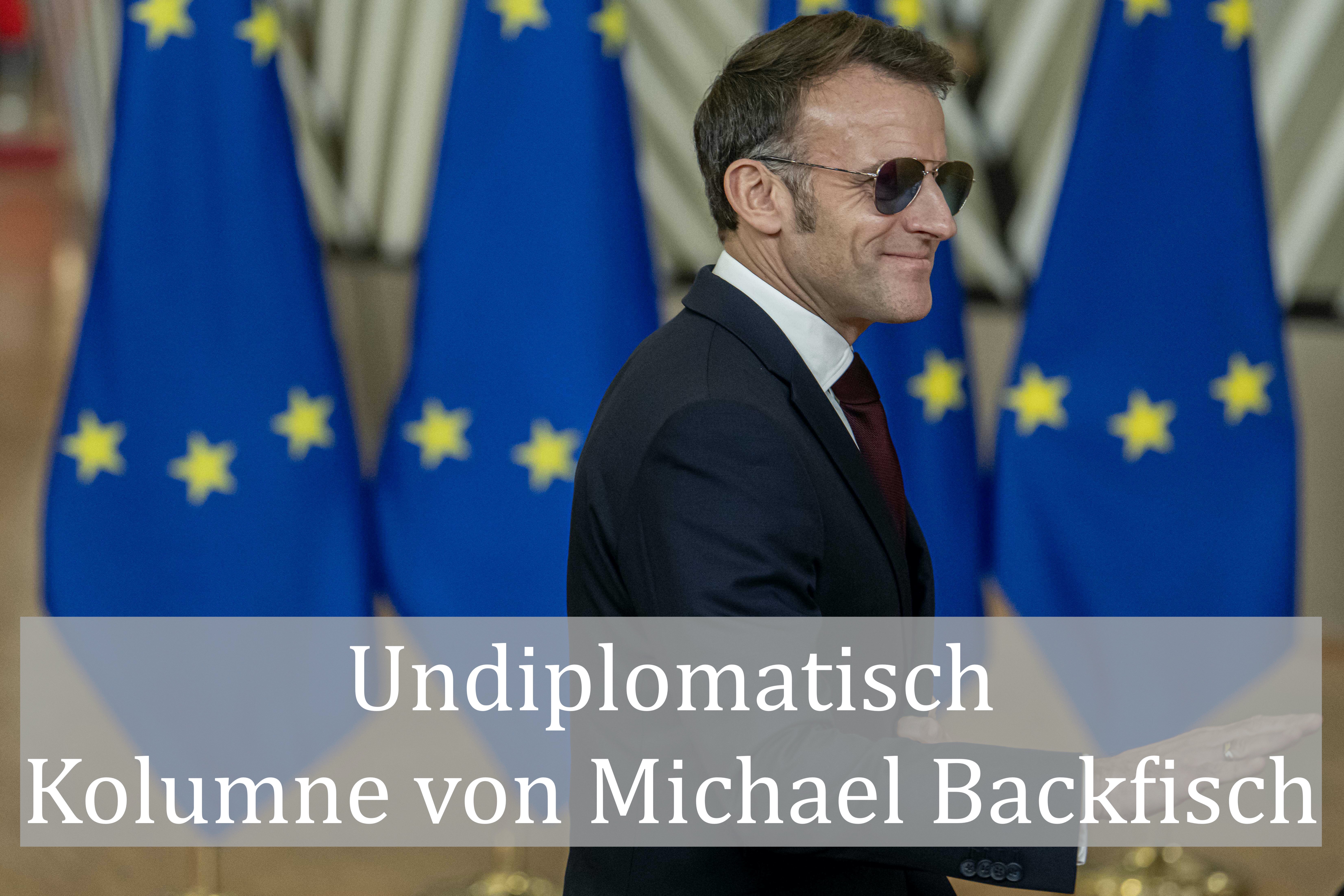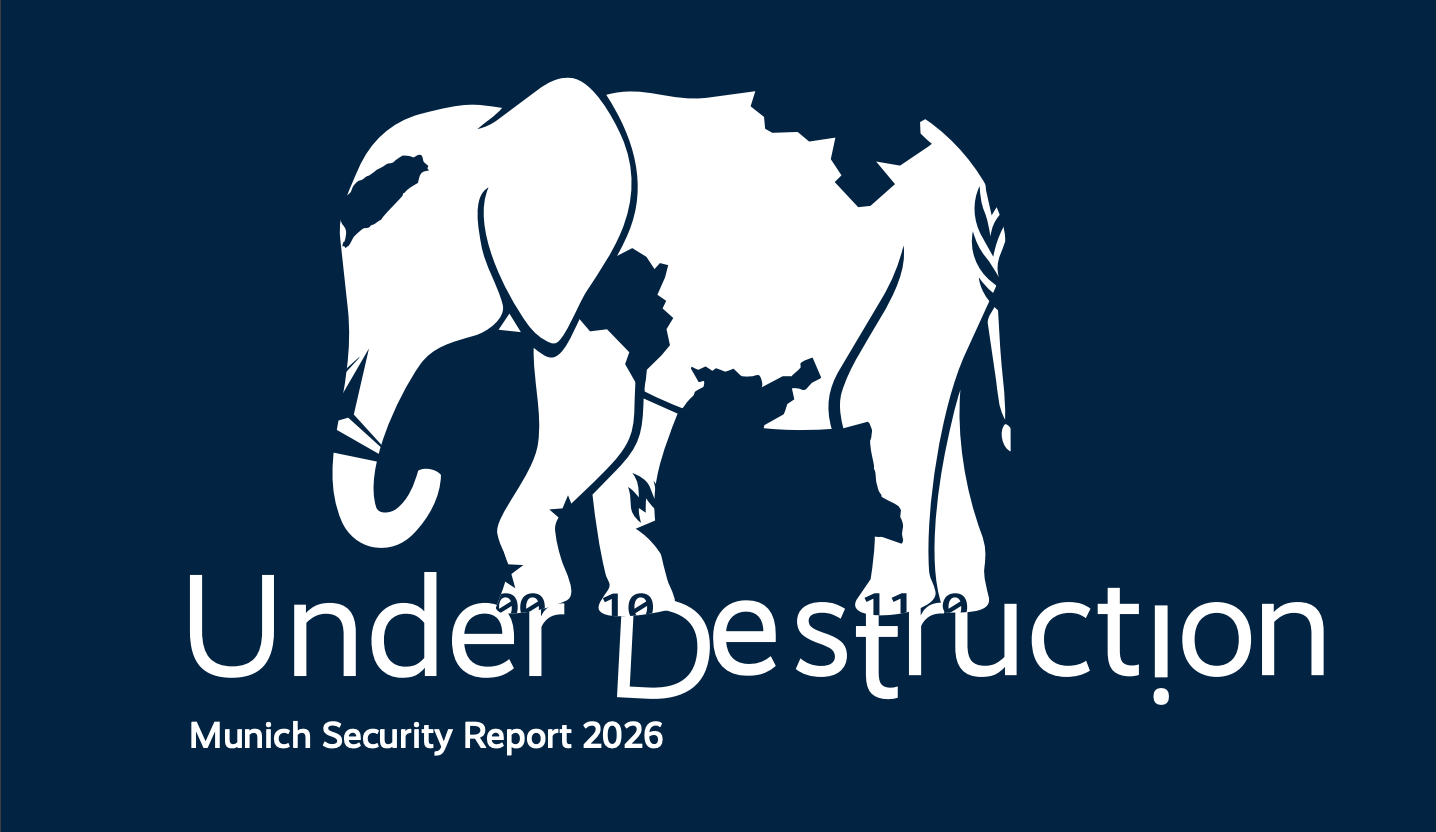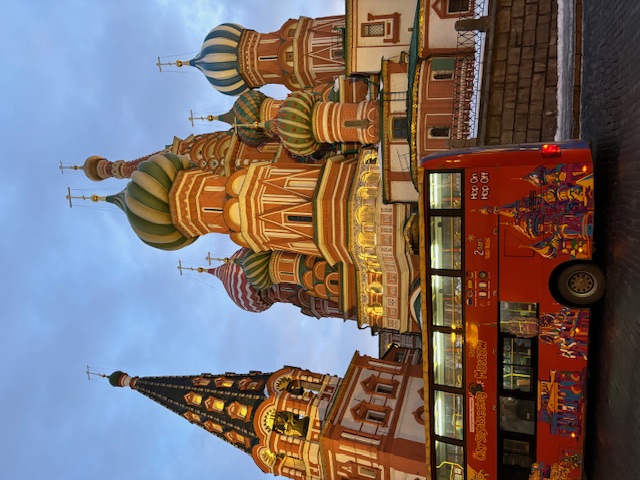diplo.news
"The Chinese President is the only person who can stop the war."
Interview von Gudrun Dometeit
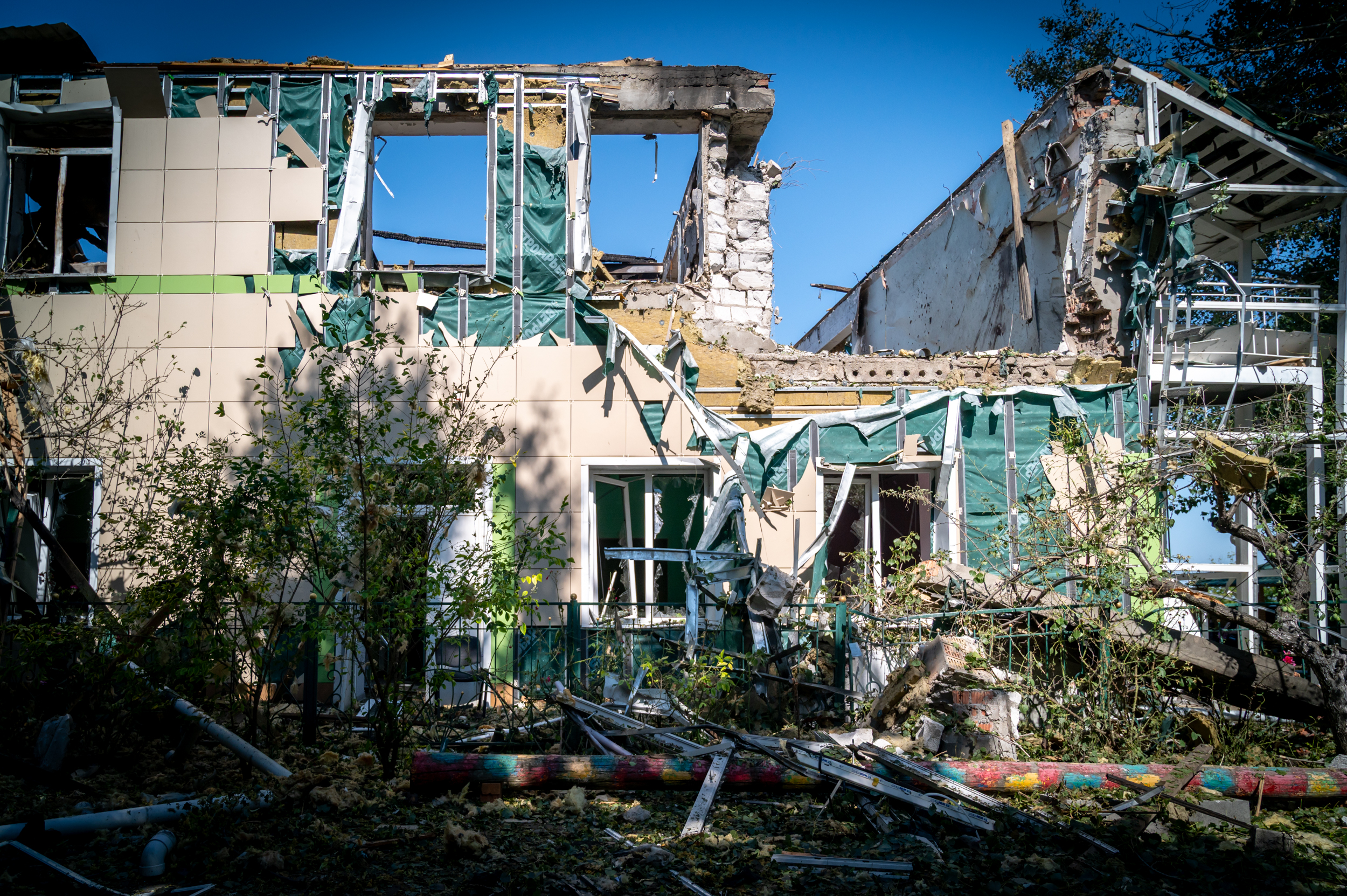
At the beginning of September, Russia and Belarus will launch the large-scale military exercise ‘Zapad 25’. Some NATO countries fear that this may not only be military training but preparation for an attack on NATO's eastern flank. Is this fear justified?
Since I left NATO headquarters in mid-January, I am of course no longer in the loop on classified information, so I cannot answer this question based on real-time information. ‘Zapad’ is not new but takes place annually, and Russia has always been the subject of observation. The Baltic states, Poland and NATO as a whole are now also looking closely to see if there are any signs of aggression against NATO. Russia's ambitions extend beyond Ukraine. In December 2021, Moscow announced that it basically wants to re-establish a buffer zone consisting of the Baltic states, Poland, Slovakia, Hungary, Romania and Bulgaria. Russia did not want to invade, but wanted NATO to withdraw and only hold a relatively small exercise in these countries once a year. However, I would be surprised if an invasion were to take place now, because I believe that the Russians are still very, very busy in Ukraine.
What exactly would be the indicators of an attack?
The massing of troops, of course, and the transport of hospitals, large quantities of ammunition or blood reserves. These would be signs of the deployment of infantry forces, in which soldiers are highly likely to be wounded. We saw such a scenario in and around Ukraine in 2022. Actually, we all knew what was happening. But there were still a number of NATO countries that couldn't believe that Vladimir Putin would really attack. I think that kind of naivety has disappeared. As for the exercise ‘Zapad’: this has been smaller than usual in recent years. In 2017, 200,000 soldiers took part, which is not an unusually high number if, as Russia puts it, the aim is to repel a NATO invasion. I would be surprised if they could mobilise as many forces this year.
If Russia does not dare to invade NATO territory because it is currently too tied up in Ukraine, would it not be in its interest to end the war in Ukraine in order to have a free hand for whatever plans it may have against NATO?
The priority for Russia is Ukraine. If the Russians really wanted to end this war, they could pack their bags and go home – then it would be over. But they are not doing that. And because they are continuing, the Ukrainians must continue, because if they ended the war today, they would have lost their country. Ahead of the planned talks between Donald Trump and Vladimir Putin in Alaska, there have been no real proposals other than a few words from Putin that he is serious about ending the war. The Ukrainians are very reluctant to believe Putin and think that Russia will use the ceasefire to regroup its troops. At present, Putin does not even control the entire territory of the four provinces or oblasts that he claims as part of Russia. That is likely to be the minimum he wants to have before negotiations begin.
Even in times of tension, there have been a number of mutual commitments between NATO or the West and Russia, such as the announcement of manoeuvres and informal channels to avoid major escalations. Is there still such a minimum level of communication between the two sides?
There is still a hotline between SHAPE in Mons, Belgium, the Supreme Headquarters Allied Powers Europe, and the Russian High Command. It is checked technically everyday, i.e. someone picks up the receiver and tests whether there is still a connection. I myself have tried four times to contact Valery Gerasimov, the Russian Chief of the General Staff. After 2014, only two people were allowed to have contact with the Russians: the Chair of the NATO Military Committee and the NATO Supreme Allied Commander Europe. There was no longer any contact at the diplomatic level. The last meeting took place with my predecessor in 2019.
And how did Gerasimov respond to your attempts to contact him?
The first time, he said, ‘I'm busy with this special military operation. When I'm ready, I'll get in touch with you.’ Of course,that didn't happen. After that, I got in touch because of reports of potentially highly escalatory incidents. Like the incident in Poland when a missile killed two civilians – which turned out to be an Ukrainian air defence missile. Then there was the Russian violation of Romanian airspace. The third time, Gerasimov said he couldn't talk to us because we were part of the problem. And the last time, he said something like, ‘I can't talk to you, but you can always reach me through my contact in Brussels.’ There is still an embassy there with a defence attaché. We communicated through that. But I was unable to talk to him directly about what was happening. That's bad, because the idea of such high-level military contact is not to become friends per se,but to ensure that in the event of an incident, you can pick up the phone and ask questions. Before starting a war, it is important to check whether the incident might be a technical error. Gerasimov also did not speak to the Supreme Allied Commander Europe, only to the military chiefs of the United States, France and Great Britain.
So some form of communication is obviously working... That would be somewhat reassuring for people who fear a third world war. In your book (‘If You Want Peace, Prepare for War’) however, you discuss how people should prepare for war.
No, communication is not working, not at the NATO level. It's Russia's game; they want bilateral contact and hope to influence individual nations. They have not achieved any of their strategic goals in Ukraine and are not interested in any talks. I have often been asked the question: Why don't you want to talk about peace instead of preparing for war? Well, it takes two to tango. You can't talk your way into peace. The only language Putin understands is that of power and strength.
(Eleonora Russell, co-author): That doesn't mean we should be aggressive. We also had a big discussion about the German book title. It's about preparation, basically a kind of self-defence course, so that we are not completely defenceless in the event of an attack. If we show that we are strong in every respect, mentally, physically and economically, then the likelihood of an attack decreases. We don't want to scare people, we want to prepare people.
A US-general recently warned that if the Baltic states were attacked, the West should respond by conquering Kaliningrad. That sounds pretty aggressive, and certainly not like an attempt to avoid escalation.
What would you suggest? What you are saying corresponds to the Russian narrative. That everything we do will lead to escalation. But the Russians started the bloody war. We sometimes restrict ourselves because we are afraid to do things that make military sense. I am very glad that NATO is now willing to consider precision weapons. If we are attacked by Russian missiles, we will strike deep inside Russia. You can wait for all these missiles and try to shoot them down, or you can take out the systems from which they are fired. That is the far smarter approach and does not contravene international law. We must stop talking about it as if we were the aggressors. In the scenario you described, the Russians started it.Then we will hurt them, whether in Kaliningrad, Moscow or wherever. Of course, that is for the leadership of NATO and the NATO countries to decide. Russia should understand that it would be making a very, very big mistake if it attacked. If it calculates that the costs would ultimately outweigh the benefits of a war, then deterrence actually works.
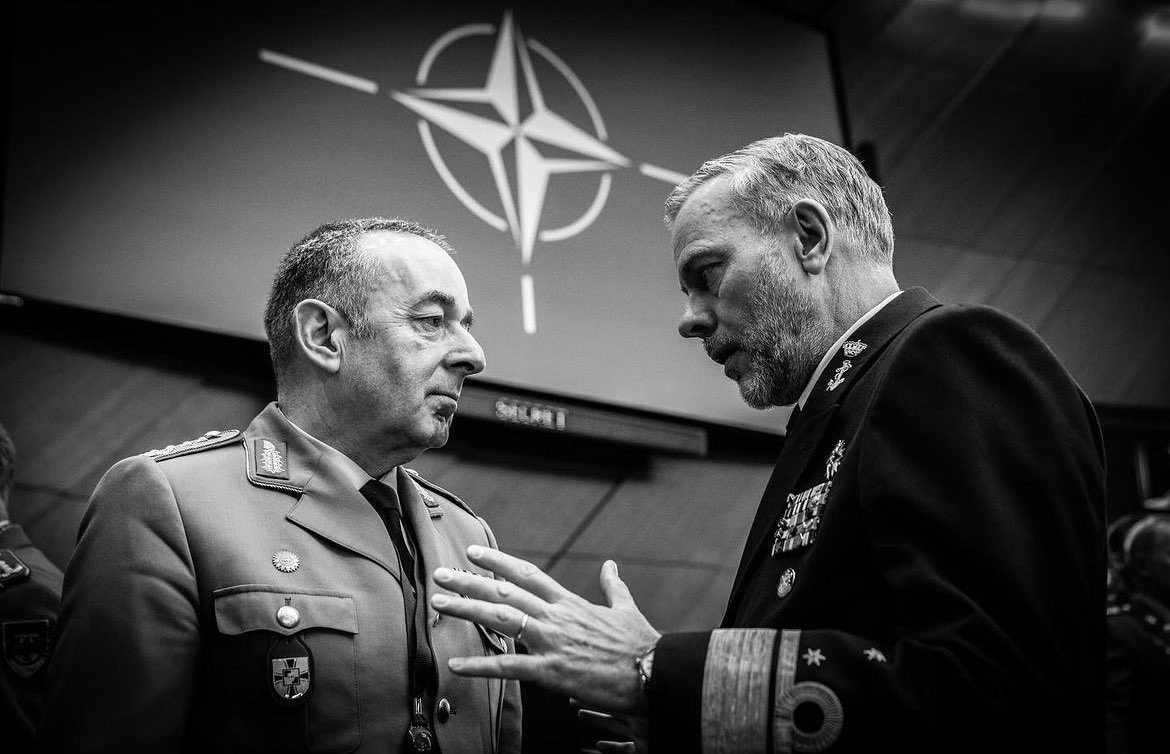
Donald Trump is personally attempting to end the war in Ukraine. How likely do you think this attempt is to succeed? Could Russia ultimately be willing to backdown and agree to a ceasefire as the beginning of what would undoubtedly be a very, very long peace process? Or is Trump being led by the nose by Putin?
Russia is not interested in peace for several reasons. Firstly, Putin and his entourage are firmly convinced that Ukraine is part of Russia and must therefore be conquered. As long as this is not the case, they will continue to fight. Secondly, the entire economy is based on this war. If it stops, there will be no economy left. Thirdly, Russian forces in Ukraine are now receiving much higher pay. Even if a son or husband dies, the families receive a sum of money with which they can pay off their house, for example. So that will also stop. And then 700,000 traumatised Russian soldiers will come home, posing a major problem for society. In the Afghanistan war in the 1980s, traumatised returnees were responsible for high levels of crime and abuse. That is why I do not believe that sanctions against Russia are sufficient to stop the war. Secondary sanctions against India, China, North Korea or Iran, which enable Russia to continue the war by purchasing oil and gas, will be interesting. They may cause China to reconsider its behaviour.
Can the war be won by military means?
That is unlikely at the moment. The Russians are not winning the war, and the Ukrainians are not losing it. There is a kind of strategic stalemate. No major breakthroughs are expected. What is hardly discussed is that Chinese President Xi Jinping holds the key to ending the war. Everyone is looking at Trump, Zelensky or Putin. No one is talking about the real puppet master. Russia will not be able to continue without China's support. Xi is the only person who could really stop the war – if he pulls the plug. However, the Chinese foreign minister recently said that it would be unacceptable for China if Russia lost this war. If an autocratic country that has violated international law loses a war, it would show that it is not worth breaking rules and laws. But if this nation neither wins nor loses, the game can go on forever. That is in China's interest.
The situation is extremely complex due to the many geopolitical players involved. Nevertheless, let us assume that a ceasefire is reached: How should Ukraine's security be guaranteed? How could the border with Russia be secured – with troops from NATO countries?
First, the border would have to be defined. Does it run along the front line? Or between Ukraine and the oblasts that Russia now claims are part of its territory? Then a mechanism would be needed to monitor violations of the ceasefire, whether by Ukrainians or Russians. Monitoring is necessary while a longer-term solution to the conflict is being discussed. This could mean, for example, that Ukraine declares that it will never give up the four oblasts but will accept the agreed border for the time being. And is an international mission about defending Ukraine or just monitoring? Will the Russians accept NATO countries being part of a monitoring force? We know that the United Kingdom and France have been working on such an idea, but if it is not accepted by one of the parties, it will not be a solution. Will the United States be involved as a peace broker, even though it does not really want to intervene with its own troops? Will there be a joint mission by the Chinese and Americans? There are no easy answers.
Could the UN or OSCE take on a monitoring mission?
The UN is paralysed when it comes to the Ukraine conflict. Two of the permanent members of the security council – Russia and China – are basically blocking everything. And the OSCE is not powerful enough because it does not have many legal means to impose anything on the rest of the world.
Is NATO focusing too much on the threats posed by Russia in its strategic considerations and neglecting China?
There is no direct military threat from China. But there is a growing understanding that China is becoming a challenge. At the NATO summit in Washington in July 2024, sharp criticism was voiced (of the boundless partnership between Russia and China, ed.). However, this does not only concern NATO but also the EU or G7, which understand that our dependence on rare earths from China, for example, makes us vulnerable. We must do something about this.
The new Federal Chancellor Friedrich Merz wants to make the Bundeswehr the strongest conventional army in Europe and has introduced voluntary military service. Is this the right way forward? Would a combination of a professional army and civil defence make more sense?
What I say to every minister and every head of government I have met over the past three and a half years is: ‘Dear Prime Minister, dear Minister, you must ensure that you can scale up the number of soldiers!’ How you do that is irrelevant, but you have to find a system that allows you to quickly reach the required number.That does not necessarily have to be full conscription. In a war, it's not just about producing new bullets, armoured vehicles and tanks, but also about finding new people. People die or are wounded. Nobody likes to talk about it, but that's the reality. In the Netherlands, we also have voluntary service. If you leave school and don't want to go to university straight away, you can join the armed forces for a year. 1,000 young men and women have already done so. And interestingly, 75% of them stayed on after that one year. In Finland, the standing army consists of about 30,000 men. Within a month, they can increase that number to 280,000 – through active reservists. If they then press the button again within a year, they can increase that number to 900,000 – equivalent to about one-fifth of Finland's population. It's a good system.
Many people are currently discussing wars, but hardly anyone is talking about arms control. Virtually no treaties between East and West are still valid. Wouldn't it be urgently necessary right now to think about a new security architecture in Europe, given the new arms race and new weapons?
Europe is not really a player. It never has been. It was NATO, led by the United States. Most of these arms control treaties were concluded between the Soviet Union and the United States, and then other nations joined. The big problem for the United States and Russia is that both countries restrict themselves through these treaties. That is, after all, their purpose. But with China, there is now a third country that is increasing its armed forces and nuclear arsenal without restrictions because it was never part of these arms control mechanisms. The Chinese will probably only talk about a mechanism once they have what they consider to be an ideal amount of weapons. This is also a sign of the crumbling international rules-based order.
How exactly should we understand the title of your book? One of NATO's key-documents, the 1967 Harmel Report, once stated in the midst of the Cold War that deterrence and détente are both elements of security. However, there is little mention of détente in your book.
For a long time, we believed that the West had defeated communism and that economic relations were the most important thing in relations between nations. There would never be another war because it would damage the economy. This argument was refuted when Putin attacked Georgia in 2008, conquered Crimea in 2014 and started the war in Ukraine in 2022. Russia's strong economic relations with other countries did not deter him. Basically, he did it because he is a bad person. He wants something that does not belong to him, whatever the cost. It is telling that China has not distanced itself from Russia, while at the same time declaring how important international law, sovereignty and internationally recognised borders are to them. But as permanent members of the UN Security Council, China and Russia were part of the rules-based international order created after the devastating two world wars. It was an order in which disagreements should first be resolved through diplomatic talks and then in court. This entire system is deliberately being destroyed by the Russians. That does not mean that we are giving up our ideals of law and order. But we have to be realistic as well as idealistic. We believed so strongly in the ideal that we forgot that it might also require the big stick.
Your statements about the future of coexistence do not sound very optimistic.
(Eleonora Russell) We are still very optimistic. And the reason for that is that we saw what was going on behind the scenes at NATO headquarters. We experienced the real NATO, so to speak, and we still believe in it. Even more than ever. The solidarity between the allies is real and deeply felt.
That sounds overly positive. The US keeps bringing up withdrawal, and in Europe, doubts about US solidarity are by no means dispelled.
Have they left NATO? No, they haven't. And besides, it is we who have let the US down, letting them do all the work and foot the bill. And who have promised year after year that we would do better, only to break our promise every year. That is why they are now angry and fed up with Europe. If the Europeans finally keep their promises, NATO can be stronger than ever. For example, Europe could buy weapons systems that are currently only available to the US. Then individual countries could take on tasks alone or jointly that until now only the US has been doing.
Are you advocating the purchase of American weapons? But Europe is trying to build up its own efficient arms industry.
Sometimes you have to buy American weapons because there is no alternative. For example, Patriots or F35 fighter jets. It's not about manufacturers, but about capabilities, for example in air defence or communications satellites, where we have relied on the US for too long.
Is it also about nuclear independence from the US?
No, because that is unrealistic.
After leaving NATO, what does your professional future look like?
Together with my co-author, I will be giving lectures in the Netherlands to raise awareness of a society-wide approach to resilience. In cooperation with Deloitte, we will also advise companies across Europe that keep society running, such as large supermarkets and energy suppliers, to convince them to better prepare for crises. And we will talk to financial institutions and explain to them that it is ethically acceptable to invest in defence and that this does not conflict with sustainability goals.
Are you not interested in using your immense experience and going into politics?
Actually, some people have suggested that. I was also asked by a party in the Netherlands if I would be interested, but I said no. Now I have much more freedom to talk about things that I think are important.
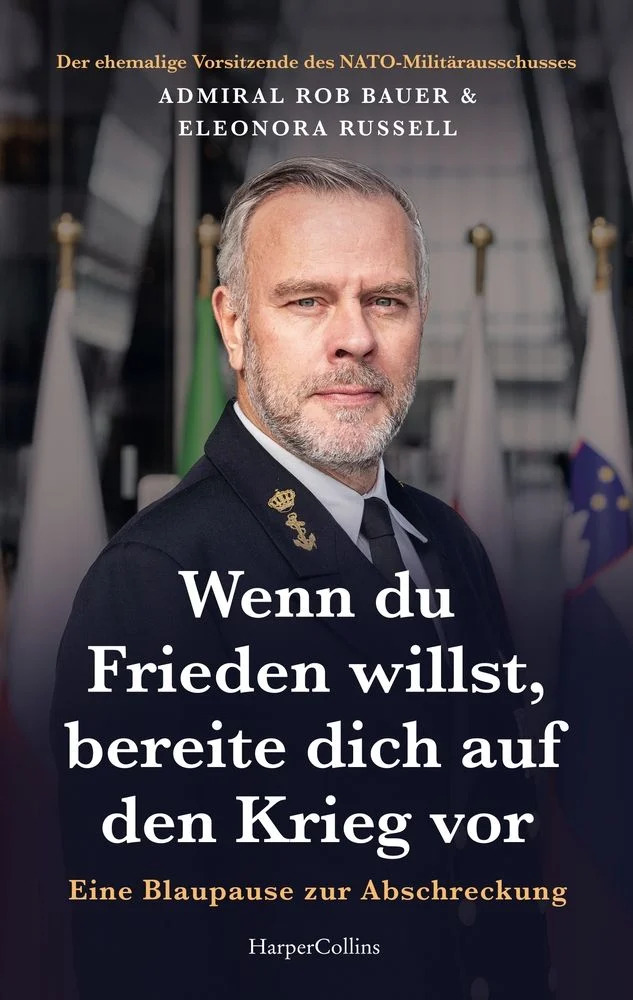
Wenn du Frieden willst, bereite dich auf den Krieg vor. Eine Blaupause zur Abschreckung: NATO-Gipfel, 2025 | von Admiral Rob Bauer und Eleonora Russell
Verlag: HarperCollins
Former Dutch Chief of Staff Rob Bauer took over as Chairman of the NATO Military Committee in 2021, becoming the NATO Secretary General's most important military advisor. During his tenure, the 62-year-old developed new defense plans and structures to modernize NATO in light of the new security situation following Russia's attack on Ukraine. He had already worked with co-author Eleonora Russell in the Netherlands. The communications expert wrote several award-winning speeches for him.

